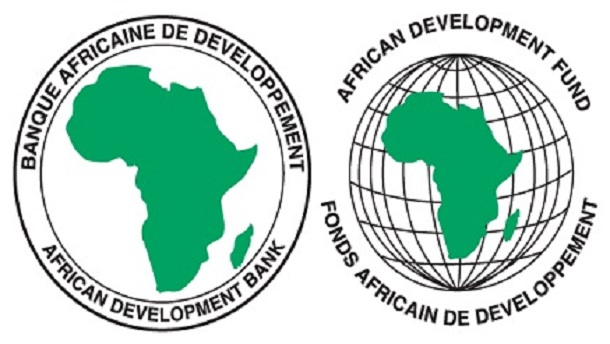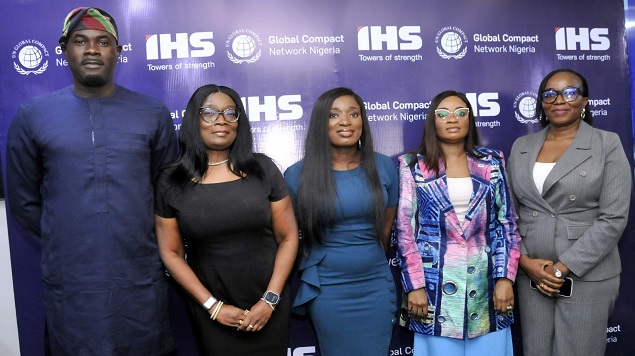General News
AfDB, OpenOil Launch Report on How African Governments Manage Extractive Resources.


African Development Bank (AfDB) and OpenOil, a Berlin-based financial analysis firm, have jointly produced a report on how African governments use financial models to manage oil & gas and mining projects.
The report was launched at the 13th Annual General Meeting of the Intergovernmental Forum on Mining, Minerals, Metals and Sustainable Development (IGF) in Geneva, Switzerland.
Over 150 experts and representatives of international development institutions, governments, civil society and extractives companies attended the launch.
These included the World Bank, United Nations Environment Programme (UNEP), United Nations Development Programme (UNDP), United Nations Conference on Trade and Development (UNCTAD), Organisation for Economic Co-operation and Development (OECD).
Mining companies and miners’ associations such as Newmont Mining Corporation, AngloGold Ashanti, Anglo American and International Council on Mining and Metals (ICMM) also attended.
The joint report was presented by Pietro Toigo of the AfDB’s African Natural Resources Center and Olumide Abimbola from OpenOil.
“This report is the first of its kind in Africa and we hope that it will stir debate within the continent’s mining sector and contribute to countries getting more out of their mining projects,” they told the participants.
The report, Running the Numbers: How African Governments Model Extractive Projects, analyses the capacity of 19 African resource-rich countries to use financial models, which simulate a simplified version of a real-world project in order to determine their financial benefits to the countries.
AfDB and OpenOil conducted a survey of nearly 50 government officials to illustrate not only how widespread use of financial models is, but also how their results are utilised to inform policy.
“Financial models are essential throughout the life-cycle of extractive projects,” said Johnny West, Director of OpenOil.
“They are not just important during the development of the fiscal regime, but also for the negotiation of fiscal terms with companies, for revenue forecasting, and for auditing and tax-gap analysis.”
“This report not only stresses the need for African Governments to make efforts to close the information gap with extractive companies, but also shows where there are capacity gaps and how those gaps could be addressed,” Traore said, urging development partners to invest more in capacity building.
Also, there is a substantial gap in access to data that are key inputs for financial models in African countries, with the largest gaps in assessing information on capital costs and operating costs of projects.
In addition to the need to build in-house financial modelling capacity, the report suggests that governments need to improve internal business processes and address the large gap that the report shows exist between information available to different agencies, departments and ministries.
“This study forms a crucial part of the Center’s support to African countries in realising the full potential of their natural resources”, Traore said.
“How are countries supposed to enter into negotiations with extraction companies that use financial models if the governments of such countries are not in possession of the latest and best models to calculate what a potential project is worth?” Toigo asked.
The report also encourages development partners to make capacity building in financial modeling a more significant part of their support to the management of extractive resources.
Partners doing so already were encouraged to not just supply financial models as part of isolated technical assistance, but to also invest in equipping government officials with skills to create and use models.
General News
NASRDA, Galaxy Space Firm Sign MoU on Satellite Connectivity

National Space Research and Development Agency (NASRDA) has signed a Memorandum of Understanding (MoU) with Galaxy Space, Chinese LEO satellite player, to deploy direct‑to‑device (D2D) satellite services nationwide by the end of this year.

According to media reports, Galaxy Space will integrate its LEO satellite constellation into Nigeria’s telecom grid, which will allow existing smartphones and laptops to link directly to the satellites.
The MoU also covers technology‑transfer programmes, joint R&D labs and the co‑production of a CubeSat by Nigerian engineers.
Apart from the benefit of enabling mobile coverage outside of terrestrial network range, Dr Matthew Adepoju, director- general, NASRDA, said the deal with GalaxySpace would enable Nigeria to build up its domestic space technology sector.
“It is no longer acceptable that we must import every single device we need,” he told the News Agency of Nigera. “The time has come for us to produce our own technologies here at home.”
GalaxySpace, which designs and manufactures its own LEO satellites, currently has a test constellation of seven LEO satellites in orbit, and has said its “Mini-Spider” constellation will eventually comprise up to 1,000 satellites.
GalaxySpace said it has also signed multi-tier partnerships in Thailand, the United Arab Emirates, Saudi Arabia, Indonesia, and Malaysia.
Last year, it also signed a deal with Hong Kong carrier PCCW Global to integrate its LEOsat connectivity with PCCW’s worldwide network, giving it access to over 3,000 cities across the Americas, Europe, Africa, the Middle East and Asia-Pacific.
General News
IHS Nigeria, United Nations Global Compact Host High-Level Dialogue on Sustainability and Greener Business Practices in Nigeria

IHS Nigeria, in collaboration with the United Nations Global Compact Network Nigeria, hosted a high-level private sector dialogue themed “Collaborative Strategies for Greener Business Practices, Innovation and Sustainable Development”.

The event, held in Lagos, brought together key players from different sectors including finance, law, telecommunications, biodiversity, and corporate sustainability to explore actionable pathways to achieve meaningful environmental stewardship in Nigeria.
The panel session offered bold perspectives on integrating sustainability into business frameworks across different sectors, whilst dispelling myths, and highlighting opportunities for organizations, and calling for collective action from all players within the business value chain.
Delivering a keynote address, Titilope Oguntuga, Director, Sustainability at IHS Nigeria, emphasized the urgency of environmental consciousness: “Sustainability is not a destination — it’s a collective journey.
“It requires courage to transform, vision to lead, and collaboration to scale. Nigeria stands at a crossroads. We can either be overwhelmed by the risks or rise to become a beacon of green innovation and inclusive growth in Africa. The choice is ours — and the time is now.”
Sylvie Josel, Lead, Biodiversity and Nature-Based Solutions at the United Nations Global Compact, joined virtually from New York and spotlighted nature as a strategic asset:
“Nature must no longer be treated as an afterthought. It underpins everything, from human rights to supply chains. Embedding biodiversity into a company’s core strategy isn’t just a risk mitigation measure; it’s a smart, future-forward business imperative”.
Lanre Babalola, Group Head, Climate Finance and Sustainability at the Bank of Industry (BOI), provided insights into how BOI is funding sustainable ventures and driving innovation: “We look beyond profitability; we look at environmental and social impact. Whether it’s plastic roads, biogas, or solar transitions, we support businesses that are not only bankable but capable of reshaping the future.”
From the legal perspective, Oyeronke Oyetunde, General Manager, Regulatory Affairs, MTN Group, drew attention to the regulatory challenges hindering sustainability adoption: “Our legal frameworks are trailing behind today’s sustainability realities. We need forward-thinking laws, reduced regulatory silos, and incentives that reward the right behavior. Sustainability can’t thrive where enforcement is weak, and taxation is excessive.”
Abimbola Agbejule, Head, Corporate Sustainability and Responsibility at Wema bank, spoke passionately about inclusiveness in sustainable development: “You don’t need to start big to make impact. MSMEs make up a huge part of our economy. Sustainability should be embedded in their day-to-day activities, and we must democratize access to knowledge, tools, and partnerships.”
The session was moderated by Gloria Okorie, Head of Programs at the United Nations Global Impact Center.
The event closed with a resounding call to action for stronger legal frameworks, deeper collaborations, and inclusive capacity building across sectors. The event further reinforces IHS Nigeria’s position as a leader in corporate sustainability and innovation in Nigeria.
“At IHS Nigeria, we recognize that true progress happens when sustainability is not an obligation, but a culture, lived every day, across every unit,” Titilope Oguntuga added.
Through initiatives like this dialogue, IHS Nigeria and its partners continue to champion solutions that protect the planet, empower people, and ensure long-term business viability.
General News
Bridging the Digital Divide: Over 700 Young Africans Empowered by Paradigm Initiative

Paradigm Initiative (PIN), a leading digital rights and inclusion nonprofit, has revealed in its 2024 Annual Impact Report that over 707 young individuals across 11 African countries have been empowered through its flagship LIFE Legacy Programme.

The initiative delivers training in life skills, ICT, financial literacy, and entrepreneurship—transforming underserved communities across the continent.
In 2024, the LIFE Legacy Programme ran 25 training cohorts across Cameroon, DRC, Ghana, Kenya, Senegal, South Sudan, Liberia, Uganda, Tanzania, Zambia, and Zimbabwe. In Senegal, 60 laptops were distributed to local partners, while digital literacy programmes were launched in schools in Cameroon and Tanzania through the LIFE@School initiative.
PIN advanced its advocacy by supporting 29 legal cases in Ghana, Kenya, and Nigeria. A notable success was the landmark judgment in Molehin v. UBA, where the bank was found guilty of violating data privacy laws.
PIN’s research and media efforts made powerful waves. The Londa digital rights report, covering 26 countries, was downloaded 8,457 times. Its fourth short film, Undersight, recorded nearly one million views on YouTube. PIN also developed an AI strategy report with TrustLaw and collaborated with the Centre for Democratic Technology to assess content moderation policies for Kiswahili across Kenya and Tanzania. A separate report highlighted the troubling deployment of surveillance technologies across Africa, which was referenced in direct advocacy engagements with a telecom operator.
The organisation’s advocacy also contributed to the adoption of the African Commission’s Resolution 580, which urges governments to avoid Internet shutdowns during elections—strengthening digital freedom across the continent.
Meanwhile, the Digital Rights and Inclusion Forum (DRIF) convened in Accra attracted 1,004 delegates from 61 countries, strengthening regional collaboration and amplifying the voice of civil society. PIN’s strategic communications pushed its media reach to 1.43 billion and social media engagement to 8.8 million.
Alongside training and policy efforts, the organisation inspired young changemakers through youth-focused campaigns and hosted seven fellows under the Digital Rights and Inclusion Learning Lab (DRILL) fellowship.
Crowning a year of impact, PIN earned the maiden PrivCon Privacy Award in Nigeria and was recognised in the Social Innovation Category at the Nigeria Innovation Awards for its work connecting African youth to digital opportunity.

 News2 days ago
News2 days agoLasaco Assurance to Invest in Technologies, Systems to Deliver Value to Clients

 E-Financial2 days ago
E-Financial2 days agoNIBSS National Payment Stack to Transform Nigerian Instant Payments

 E-Financial2 days ago
E-Financial2 days agoCBN Reaffirms Banking Sector Resilience as Forbearance Ends

 News1 day ago
News1 day agoPalmPay, Glo Launch “Recharge and Win Bonanza 2” with Exciting Prizes

 General News1 day ago
General News1 day agoBridging the Digital Divide: Over 700 Young Africans Empowered by Paradigm Initiative

 General News1 day ago
General News1 day agoIHS Nigeria, United Nations Global Compact Host High-Level Dialogue on Sustainability and Greener Business Practices in Nigeria

 News1 day ago
News1 day agoHow and Why N210 Trillion is Missing in NNPCL – CFO

 General News2 days ago
General News2 days agoMoniepoint Demonstrates Commitment to Nurturing Africa’s Future Leaders
























